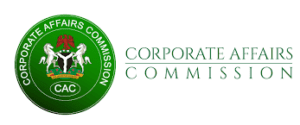


Nigeria and its slush pile of Government Aides
Nigeria finds itself grappling with a significant challenge: the economic, political, and social burdens imposed by the proliferation of aide appointments across its government. As the country navigates complex issues such as poverty, infrastructure decay, and educational deficits, the growing number of aides appointed by public officials has become a focal point of concern. This editorial explores the multifaceted impact of these appointments on Nigeria’s budget and broader societal wellbeing.
The economic implications of excessive aide appointments are stark. In a country where economic disparities are glaring, the allocation of substantial financial resources to salaries and allowances for aides diverts critical funds from essential public services. Each aide appointed represents an additional strain on the national budget, often accompanied by perks and operational expenses that add up considerably.
The opportunity cost of these appointments is significant. Funds that could be directed towards improving infrastructure, enhancing healthcare, or investing in education are instead used to support an expanding bureaucracy. This misallocation not only undermines economic development but also exacerbates existing inequalities. The growing burden on the public purse is felt most acutely in sectors that directly impact the everyday lives of citizens, contributing to a sense of disillusionment and frustration.
The proliferation of aides contributes to the erosion of public trust and the integrity of governance. When public officials prioritise the appointment of numerous aides, it often appears as though they are more concerned with consolidating personal power and securing loyalty than addressing the pressing needs of the nation. This perception can lead to widespread scepticism about the effectiveness and intentions of the government.
Moreover, the expansion of the aide system fosters a culture of patronage, where appointments are based on political favours rather than merit. This undermines the quality of governance, as decisions may be influenced more by personal relationships than by the best interests of the country. In turn, this can lead to inefficiencies and corruption, further damaging the credibility of public institutions.
Not to mention that the burden of numerous aide appointments contributes to widening inequality and growing public discontent. The visible contrast between the opulent lifestyles of public officials and the struggles of ordinary citizens creates a sense of injustice. When people see a large number of aides benefiting from the national budget while essential services remain underfunded, it breeds resentment and erodes social cohesion.
The growing disconnect between the political elite and the populace can fuel social unrest. Citizens who feel ignored and marginalised may become increasingly disengaged from the political process, weakening democratic institutions and social stability. The perception that the government is out of touch with the real needs of the people can also lead to a decline in civic engagement and trust in democratic processes. The recent Hunger Protests are evidence of this.
Addressing the burden of excessive aide appointments requires a balanced approach that aligns with the principles of transparency, efficiency, and accountability. Reducing the number of aides and re-evaluating their roles and compensation could free up resources for essential public services and help restore faith in governance. If the government declares ‘Renewed Hope,’ it must kick start this by being frugal! Implementing strict regulations and oversight mechanisms to ensure that appointments are made based on merit and need, rather than political favouritism, is crucial for improving governance.
In addition, fostering a culture of public service that prioritises the welfare of the nation over personal gain can help bridge the gap between the government and its citizens. By focusing on transparent and effective use of resources, Nigeria can work towards a more equitable and prosperous future for all.
Addressing this issue requires a concerted effort to realign priorities and ensure that public resources are used in ways that genuinely benefit the nation and its people. By doing so, we can move closer to achieving its full potential and building a more just and equitable society.



